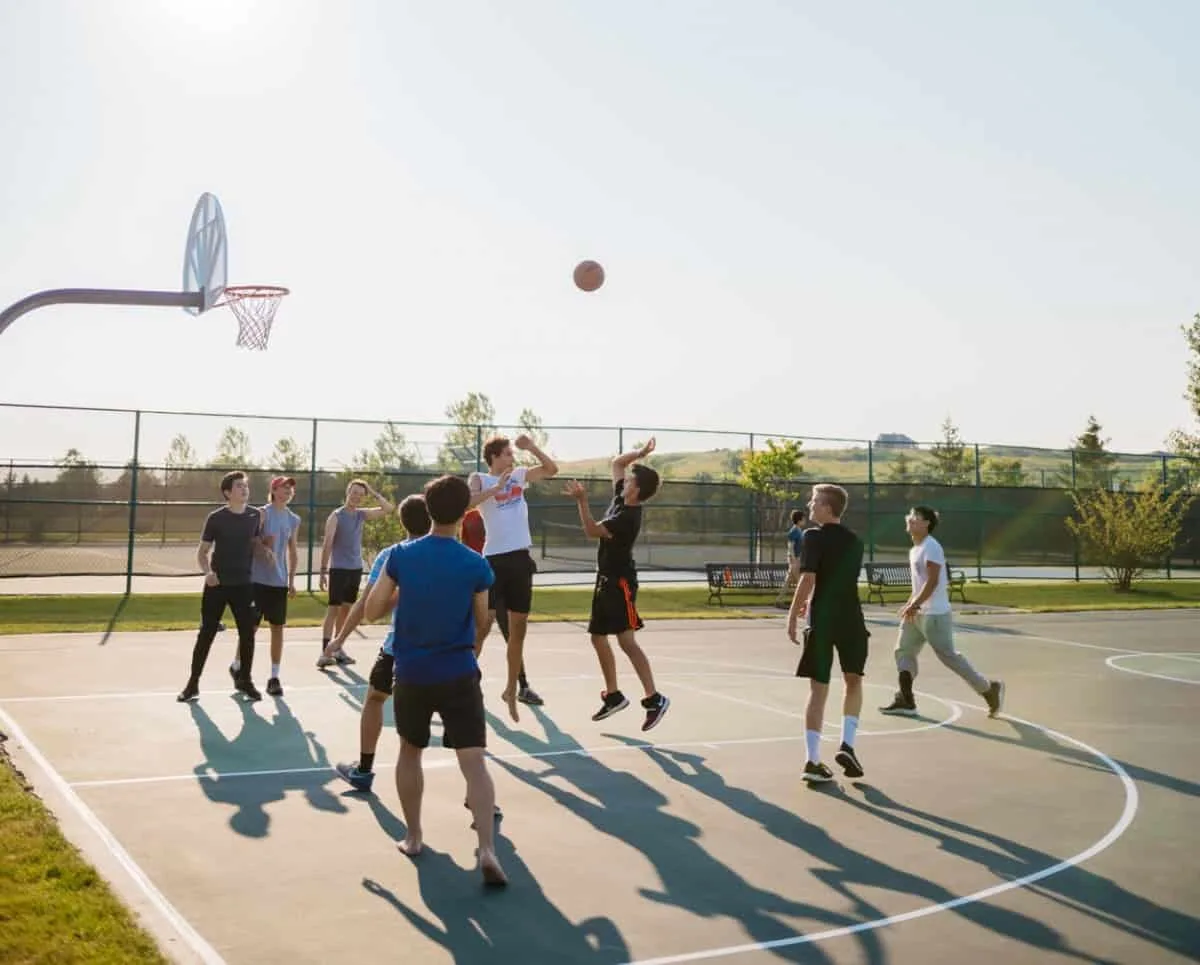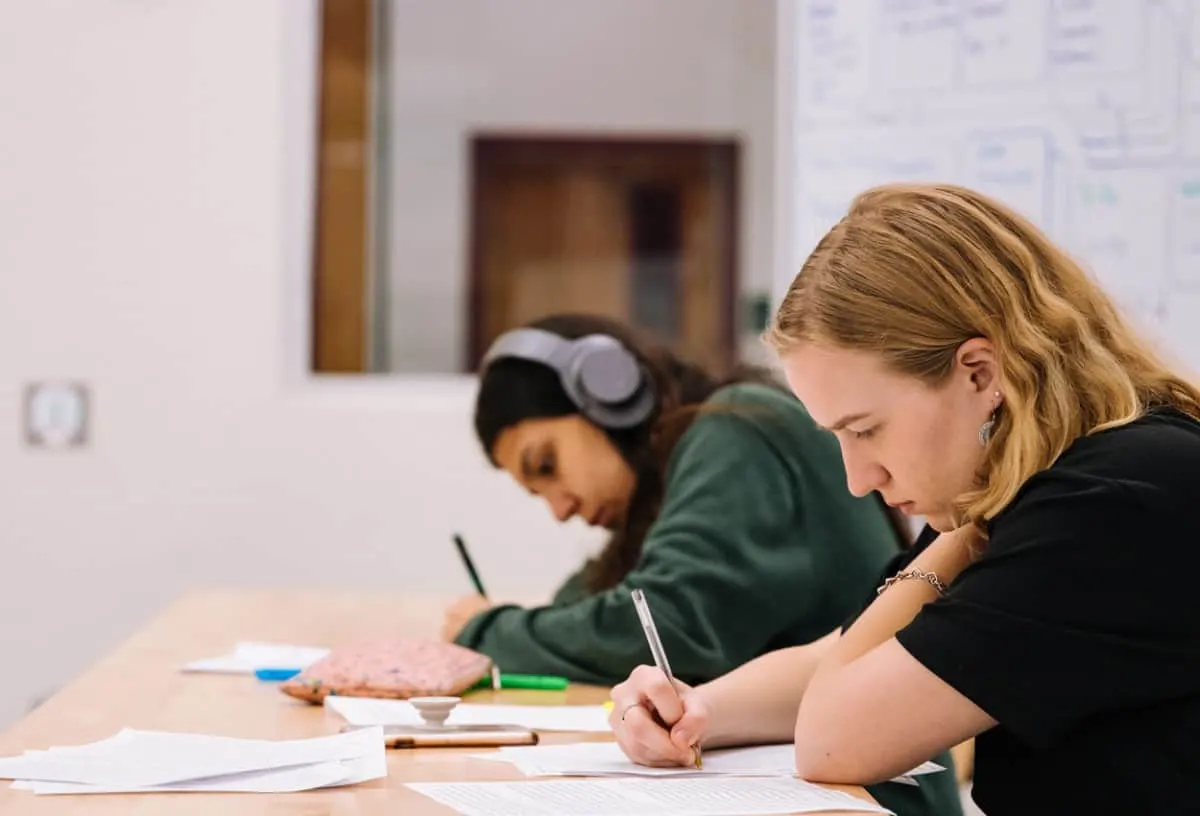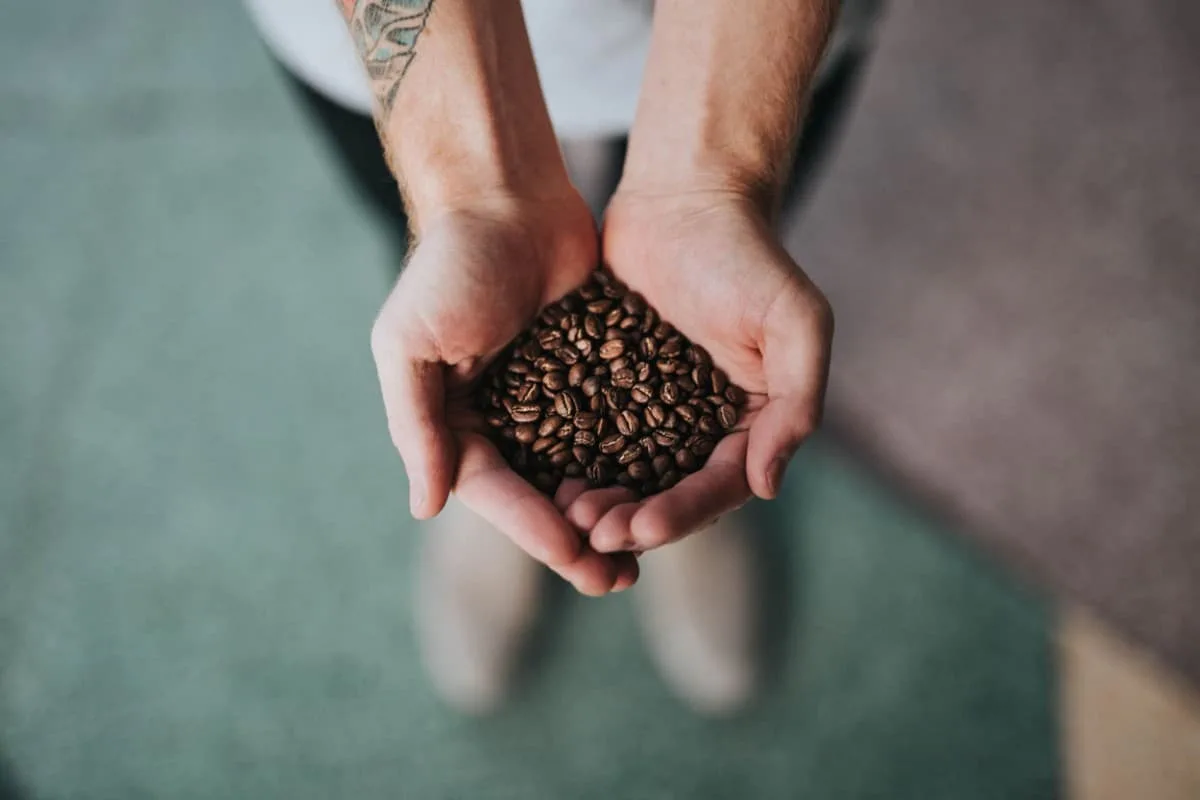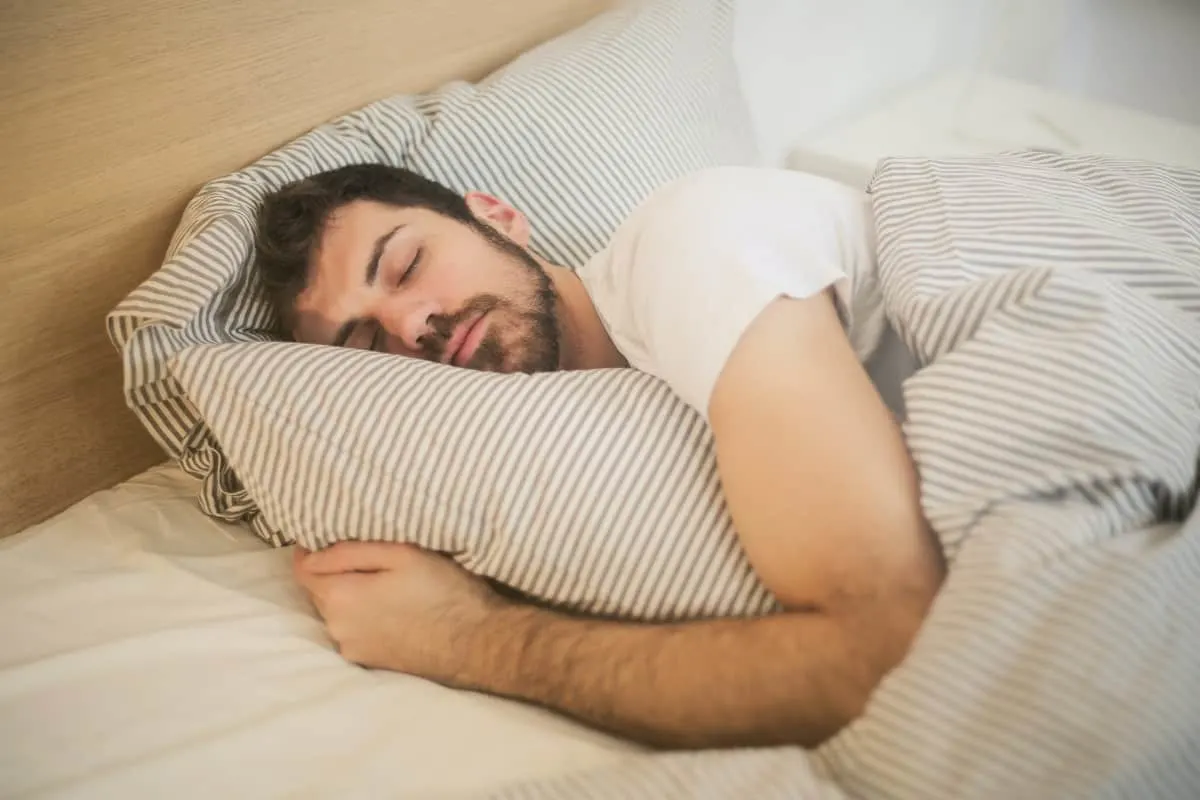Teenagers are the fastest-growing demographic of caffeine consumers, and over 80% of adolescents consume caffeinated drinks regularly.
The growing number of teens who are resorting more and more to caffeine to supply their daily energy needs can be attributed to many factors: academic demands, athleticism, poor sleep management and recreation.

While many young adults may not be aware of the dangers of consuming large amounts of caffeine at such a young age, their parents may have some reservations about letting their children
From my research, I have found that the best low-caffeine energy drink brands for teenagers are: Mountain Dew AMP Zero Sugar, Game Fuel Zero Sugar, Red Bull Zero and Red Bull Sugar Free, Kill Cliff X Recover and Aspire. If you want completely caffeine-free options I recommend: Bang Caffeine-Free, Arcane, Raizin, XS Energy, and Mawe.
You can skip ahead to the list if you want, but you can also read on to find out more about caffeine and teenagers, as well as the gray areas of caffeine regulation that not many people know or talk about.
Contents
Do Teens Need Energy Drinks?
While not good for the long-term well-being, it is understandable why more and more teens are turning to caffeine, not just for its energy boosting properties but also for its ability to increase alertness, concentration and reaction time.

The rise in teenagers’ caffeine consumption could easily be put down to marketing and popular culture embracing coffee and performance drinks, but Gemma believes it might be societal pressures that make caffeine more attractive to teenagers.
There’s a lot of pressure on teenagers to perform,” she says. “They feel the need to keep up with social media, their homework and the fast pace of modern life in general. And they see caffeine as giving them an edge.”
HCF Australia
One of the overarching reasons that teens may need energy drinks is to help them perform well in schools, not only in their studies but also in sports for those who are aspiring towards an athlete’s scholarship.
A large number of teens may also use caffeine and energy drinks recreationally, especially if they are avid video game players who may spend long hours of the nights battling strangers for imaginary coins on the cybersphere.
Caffeine and Teens
Teenagers and children have been found to be acutely more sensitive to caffeine than adults. This means that they will likely feel the effects of caffeine much faster, stronger, and in smaller amounts.
This is a problem where energy drinks are concerned because those tend to have preposterous amounts of caffeine per serving, more than one teenager can handle at one time.
While most full-grown adults can handle caffeine in doses as high as 400mg, doses as low as 100mg are enough to pack a punch for those still. So experts agree that anything lower than or equal to 100mg is usually the safety limit. Unfortunately, there are not many energy drinks with caffeine content with amounts this low.

Just as teenagers are more sensitive to caffeine’s beneficial effects, they are also twice as vulnerable to the debilitating symptoms that come with regular caffeine consumption:
- anxiety
- dehydration
- irritability
- nervousness
- heart palpitations
- death
Aside from these symptoms, teens may also experience more long-term effects as a result of drinking too many caffeinated energy drinks.
Sleep Quality and Cognitive Development
One of the main concerns voiced by experts is that caffeine disrupts your sleep cycle, causing insomnia and other similar disorders that can lead to poor sleep quality.
As teenagers are still developing physically and mentally, consuming too much caffeine can affect this natural development. Poor sleep has been known to affect cognitive development in children and adolescents.
Without sufficient sleep, your brain cannot form new neural connections, which is an important process for helping preserve your mental abilities like memory, concentration, and learning.
Sleep deprivation has been known to cause a myriad of problems in teens such as depression, problems with concentration, suicidal thoughts, memory problems, anxiety, and irritability.

Gastrointestinal Upset Due To Caffeine
It’s a running joke at this point how some adults often drink caffeine first thing in the morning to “keep things moving”. While this laxative quality of caffeine helps a lot of adults to stay regular, it may have an adverse effect on adolescents.
Since teens are more susceptible to caffeine, they are more likely to experience gastrointestinal issues as a result of regular consumption. Some common side effects include diarrhea, stomach ulcers, nausea, and vomiting.
Stress and Caffeine Addiction
Studies show that teens are more prone to mental illness and addiction. Experts say that caffeine makes these conditions more likely for teens who consume it too frequently.
Just like adults, teenagers also experience caffeine withdrawals as a result of abstaining too long on any energy drinks that they may have been consuming regularly. Ironically, caffeine withdrawal symptoms are similar to those of caffeine overuse:
- fatigue
- difficulty concentrating
- anxiety
- depressed mood
- irritability
- tremors
In order to combat or relieve the withdrawal symptoms, they often go back to caffeine, leading to a condition called caffeine addiction or more precisely caffeine dependence.
Because caffeine also affects the reward center of the brain, it can lead to some unhealthy behaviors later in life, like substance abuse and eating disorders.
Caffeine and Energy Drink Regulation
While we’re on the topic of caffeine and underage children, I want to take this opportunity to talk about caffeine regulation in the energy drinks industry. You may be wondering how teens are getting their hands on energy drinks with over 300mg of caffeine in a single serving.
Well, unlike alcohol and cigarettes, caffeine is large unregulated by the FDA, which means energy drink companies can put as much as they want in their products.
Brands are required to state on their labels if their drinks contain caffeine, but they are not required to declare the exact amount.
While the general rule of thumb is 400mg per serving, the FDA does not label caffeine as a controlled substance, despite the fact that it is technically a psychoactive stimulant.
Be that as it may, minors and under-eighteens are still allowed to purchase caffeinated products like energy drinks without adult supervision.
If you want to know what experts say about how much caffeine is safe is young adults and children, watch this video:
Sugar and Teens
Caffeine isn’t the only problem with energy drinks where teens are involved. Many brands are chock-full of added sugars like high fructose corn syrup and glucose, which can cause a variety of health problems for young children.
Children and teens are significantly more at risk in developing conditions like diabetes and obesity as a result of consuming much too added sugar and carbs than a healthy adult.
Childhood obesity and diabetes are definitely an epidemic and the stats are alarming to look at, so it’s important to monitor your teen’s sugar intake. Unfortunately, energy drinks often fly under the radar because of their innocent-looking packaging.
Some common and unpleasant side effects of sugar overconsumption in teens and adults include insulin resistance, prediabetes, Type 2 diabetes, with some of the less serious ones being mood imbalance, fluctuating energy levels and hyperactivity.
Low-Caffeine Energy Drinks
While children and adolescents should limit their caffeine intake, those who are currently trying to cope with withdrawals or just simply looking for safer alternatives may find this list I’ve put together useful.
The brands on this list are sugar free and contain low doses of caffeine, in amounts equal to and below 100mg as per the expert guideline, so they are good for you if you are a teen who wants to enjoy energy drinks without any dire consequences.
However, it’s important to note that the limit should be one serving a day, to avoid going over the recommended dosage.
| Brand | Caffeine | Price (Average) |
| AMP Energy Sugar-Free | 71mg | $1.50 (single) |
| Game Fuel Zero Sugar | 72mg | $23 (12-pack) |
| Red Bull Zero/Sugar-Free | 80mg | $2.50 (single) |
| Aspire Energy | 80mg | $24 (12-pack) |
Caffeine-Free Energy Drinks
For those who want completely caffeine free energy drinks, here’s another list that will ensure your teen never comes within twenty feet of caffeine, not until their old enough anyway.
Unfortunately, without the caffeine, some of these brands may not be able to deliver the normal benefits that come with ingesting caffeine such as alertness, concentration, energy and elevated mood.
Bang Caffeine-Free
Bang Caffeine-Free is formulated with Super Creatine®, CoQ10 and EAAs (essential amino acids) to accelerate muscle recovery. Flavors include Birthday Cake Bash, Black Cherry Vanilla, Candy Apple Crisp, and Cherry Blade.
While you won’t get your energy fix with Bang Caffeine-Free, it is still calorie-free, vegan-friendly and gluten-free, which makes it an ideal drink if you want to stay off caffeine for awhile.
A 12-pack costs around $27.
Arcane Energy
Arcane Energy is the formulated with sophisticated plant-based supplements that guarantee to supply you with energy all while being caffeine-free, carefree, sugar-free, and calorie-free. Flavors include Black Raspberry, Watermelon and Citrus.
Arcane energy contains ginseng, B vitamins, Alpha GPC, L-leucine, L-valine, L-Carnitine and L-tyrosine to improve memory, physical strength and performance. It can fight fatigue, increase energy levels, and boost your mood and cognitive functions.
A 12-pack costs around $36.
Raizin Energy
Raizin Energy is a new energy drink made in Japan that is formulated with a plant-based energy booster called enXtra that is extracted from ginger and is similar to caffeine but without all the nasty side effects. It only comes in three flavors, Sakura, Hard Ginger.
Raizin also contains gingko biloba, B vitamins, amino acids histidine and isoleucine and inosotol. It claims to provide the same energy as caffeine as well as boost mental and physical performance. Raizine is caffeine-free, calorie-free, and sugar-free.
One can costs around $5.
XS Cranberry-Grape
XS Cranberry-Grape is the only caffeine-free flavor offered by XS. It contains B vitamins, taurine, only 10 calories and is sugar-free.
A 12-pack costs around $24.
Mawe Energy
Named after the Maués tribe of the Amazon who first cultivated the guarana fruit, Mawe is a new caffeine-free natural energy drink formulated with natural fruit juices (pear and apple), B vitamins (B5, B6, and B12) and guarana extract that can provide clean energy without the headaches, jitters or sleepless nights.
It is low in calories, contains only 6g of sugar, and is vegan and gluten-free.
A 12-pack costs $16.50
Conclusion
Teens and energy drinks go hand-in-hand, and there’s no point denying it. With Red Bull possibly being the most popular brand among caffeine-crazed adolescents, young adults are now consuming more caffeine than ever.
While parents may not be able to monitor their children’s caffeine intake as strictly as they’d like, it’s perhaps more important to educate teenagers on the potential dangers of their caffeine consumption so that they are more aware of the consequences.
It’s important for teens to stay as far away from caffeinated energy drinks as possible, at least until they are old enough to safely handle its effects. That being said, even some full-grown adults have trouble curbing their addiction to caffeine and have trouble dealing with the withdrawal symptoms.
The lists I’ve given are by no means exhaustive, so both parents and teens may want to do more research so that they can find the right brand for them.
As a final word of caution, science has shown that teens and caffeine generally don’t mix well and unless proper measures are taken, so be sure to keep caffeine at a distance, just in case.
